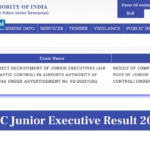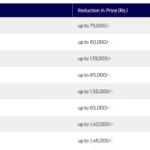Tata Consultancy Services (TCS), the crown jewel of the Indian IT industry, has long been a benchmark for consistency, profitability, and investor trust. From long-term growth to consistent dividend payouts, TCS has maintained a legacy of delivering value to its stakeholders. However, like all market giants, even TCS faces fluctuations in its share price owing to global cues, business cycles, and sector-specific headwinds.
In this blog, we’ll take a closer look at the current status of TCS’s share price, the reasons behind recent movements, key financial indicators, investor sentiment, and what the future may hold.
📊 Current Share Price Snapshot
As of late July 2025, TCS shares are trading around the ₹3,080–₹3,100 range. This is a significant dip compared to its previous highs, and marks a decline of nearly 20–25% from its 52-week high of approximately ₹4,200. Over the past few months, TCS has underperformed compared to its peers in the Nifty IT index, and investors are becoming increasingly cautious.
🔍 Key Factors Influencing the Share Price
Several macro and micro factors have contributed to TCS’s recent price volatility:
1. Global Economic Conditions
The slowdown in global economies, especially in the US and Europe—TCS’s primary markets—has led to reduced IT spending. With inflation and high interest rates persisting in Western economies, many large clients have either delayed or downsized their digital transformation budgets.
2. Rising Attrition and Employee Costs
Although TCS is known for its relatively low attrition rates compared to peers, the last couple of years have seen unusually high talent churn. Increased hiring, higher salaries, and training costs have impacted margins. While the company is trying to optimize its workforce and promote freshers into key roles, the financial pressure remains visible.
3. Revenue Growth Slowdown
In recent quarters, TCS has reported modest revenue growth. For example, the Q1 FY2025 results showed single-digit growth year-on-year. A mix of reduced client spending and slower project onboarding has dented the top line, which directly influences investor sentiment.
4. Currency Fluctuations
TCS earns a majority of its revenue in dollars and euros. While the weak rupee can be favorable for exporters, sudden currency fluctuations can impact net realizations. The volatile global currency market in recent months has added an extra layer of uncertainty to TCS’s income.
5. Competitive Pressures
The Indian IT sector is more competitive than ever. Infosys, Wipro, HCLTech, and new-age tech firms are constantly pushing boundaries in automation, AI, and consulting. TCS, while being a stable player, has faced criticism for being conservative in adopting bold, cutting-edge innovation.
💼 Quarterly Earnings Performance
TCS’s latest quarterly earnings (Q1 FY2025) revealed:
- Revenue: ₹61,200 crore (approximately 5.5% YoY growth)
- Net Profit: ₹11,100 crore (flat YoY)
- EBIT Margin: Around 23.2%, a slight dip from the previous year
- Order Book: Strong but more cautious than before
Despite solid numbers, the market expected more aggressive growth, especially in a post-pandemic, tech-driven world. The flat profit and muted guidance have led to investor disappointment, triggering selling pressure.
📈 Long-Term Fundamentals Remain Strong
While the short-term outlook appears cautious, TCS’s long-term fundamentals remain robust. Here’s why:
- Debt-Free Status: TCS operates with virtually no debt and has one of the healthiest balance sheets in the industry.
- Strong Dividend Policy: TCS is consistent with its dividend payouts, offering regular interim and final dividends to shareholders.
- Brand Value & Client Base: With clients like Citibank, General Electric, and Marks & Spencer, the company enjoys long-standing relationships built on trust and delivery.
- Global Delivery Model: TCS has centers spread across continents, helping it deliver services around the clock and improve operational efficiency.
- Leadership Stability: Under the leadership of Rajesh Gopinathan (until early 2023) and now K Krithivasan, the company has had steady strategic direction, avoiding disruptive leadership transitions.
🤝 Market Sentiment: What Are Analysts Saying?
There’s a mixed sentiment in the market regarding TCS:
- Cautious Optimism: Many analysts suggest accumulating TCS shares at current levels due to attractive valuations.
- Hold or Reduce: Some brokerages advise holding off on new investments until there is clarity on earnings revival and margin stability.
- Underweight Recommendations: A few analysts have revised their target price downward, citing weak global demand and internal cost challenges.
Retail investors are wary, while institutional investors remain cautiously optimistic, waiting for a clearer earnings trajectory before taking large positions.
🧠 Should You Buy TCS Shares Now?
Here are some points to consider:
✅ Reasons to Buy
- Stock is currently trading at a discount compared to historical valuations.
- Long-term story remains intact with strong fundamentals.
- A good option for investors looking for stable returns and dividends.
- Possibility of upside once the global IT spending cycle revives.
❌ Reasons to Wait
- Near-term headwinds may cause further corrections.
- Weak global economic outlook can impact earnings further.
- Competition from aggressive peers might dilute market share.
- Better entry points may be available if the stock tests lower levels.
🔮 Future Outlook
TCS is in a transition phase. The IT landscape is changing rapidly—with Artificial Intelligence, automation, and cloud computing reshaping how businesses operate. TCS is investing in upskilling its workforce, AI-powered platforms, and cloud partnerships to stay ahead.
From a business perspective, sectors like BFSI (Banking, Financial Services and Insurance), healthcare, and retail are expected to drive demand. If the macroeconomic environment improves in the second half of FY2025, TCS may well return to double-digit growth territory.
On the share price front, any positive news on margin improvement, deal wins, or revival in client spending could spark a fresh rally. However, short-term volatility is expected to continue.
🧾 Conclusion
TCS remains a stock worth watching. While the recent drop in share price has raised eyebrows, it also presents an opportunity for long-term investors to accumulate a fundamentally strong company at a reasonable valuation.
Whether you’re a seasoned investor or a first-time buyer, TCS deserves a place in your watchlist. But like all investments, timing, discipline, and a long-term view are essential.
In a sector known for rapid change, TCS has the resilience to weather downturns and adapt to new realities. Patience and clarity of vision will be key for investors hoping to benefit from the next wave of IT growth.










